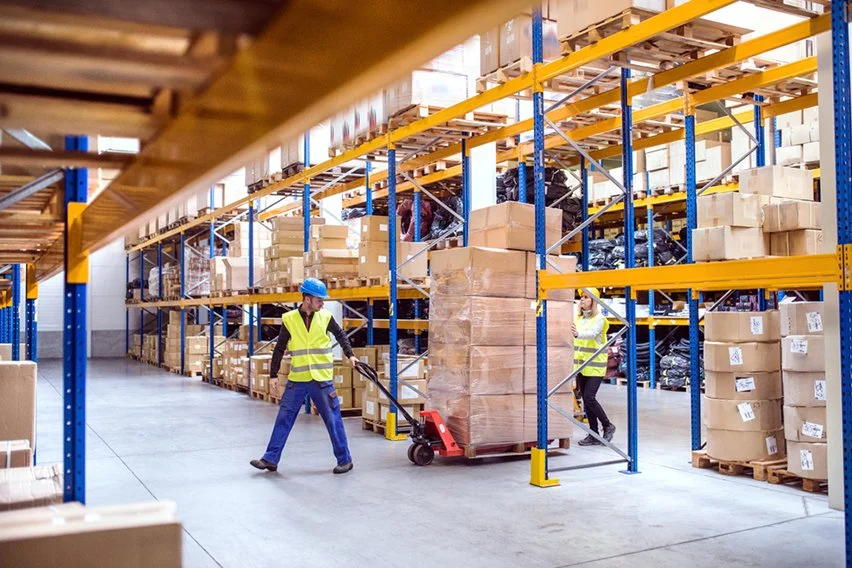The Lean method was created by the Japanese company Toyota with the aim of optimizing manufacturing flows and eliminating everything that generates errors, delays, and bottlenecks. When applied to logistics, this method has the potential to revolutionize the supply chain and generate great benefits.
Delivering more value to customers, achieving greater efficiency in less time, and using fewer resources. This is the concept behind Lean Logistics, an approach focused on eliminating waste and increasing efficiency:
What is Lean Logistics?
In the Lean methodology, the activities of the supply chain are organized and standardized with a focus on process efficiency. As the name suggests, production must be lean, and only tasks that truly add value are maintained.
In the late 1940s, Japan was going through a difficult time, in the midst of post-war reconstruction. It was in this context that Toyota executives began to reflect on how to simplify their production to reduce costs.
During a visit to the United States, they observed how industries operated based on the mass production method created by Henry Ford, and decided to develop an approach that would serve as a counterpoint to what they saw. This is how the Lean methodology was born.
Lean Logistics: Concepts
In view of its proposal to simplify and optimize the supply chain, Lean Logistics presents the following pillars:
- Reduction of Inventories: The idea is to work with the concept of Just in Time, that is, a product is only produced after it has been sold. There is no inventory.
- Synchronization in the Flow: The links in the supply chain work in synergy and integration. All professionals remain focused on the same objective.
- Optimization: An important goal is continuous improvement and being attentive to correcting errors.
- Standardization: Investing in efficient practices to eliminate waste, rework, and delays.
Implementing the Lean methodology in your company with the help of 3PL.
For Lean Logistics and its principles to be successfully applied in a business, it is worth planning and partnering with the third-party logistics (3PL) provider, your company can seamlessly integrate the Lean logistics principles into your supply chain operations. Here’s how 3PL can support your Lean implementation:
- Reduced Capital Investment: The core principle of Lean Logistics is to do more with less. Partnering with the 3PL service provider eliminates the need for warehouse space and helps reduce facility costs like rent, security and maintenance. It also helps in lowering storage as well as transportation needs, which in turn reduces the total cost of investment required for the business to maintain.
- 3PL Inventory Management: Inventory is the bane for many companies. Inventory management is becoming more essential to every business as the requirements keep increasing for example: temperature-controlled shipping, with demands like these, more businesses are partnering with 3PL providers to take care of their fulfillment. The 3PL monitors their current inventory and works with suppliers to maintain shipment schedules to ensure the flow is consistent.
A large amount of inventory leads to waste and a reduction in profits, while a shortage causes delays that impact consumer satisfaction and income. 3PLs use modern technology along with the industry’s best practices to manage your inventory with expertise. To ensure the product is always of the best quality and in supply, they carefully monitor and evaluate all data during slow periods and get ready for hectic ones.
- Client-Centric Care: Now that fulfillment is taken care of, companies can concentrate on customer-centric activities like customer support, fostering brand loyalty, and launching new goods. Lean logistics enables you to focus all of your “found time” from outsourcing on the big-picture items that require your focus. Your company will expand, and you will get a competitive advantage with this degree of efficiency, adaptability, and resource management.
How can Lean Logistics transform your company?
As we have seen, the benefits of adopting Lean Logistics are enormous. By reducing errors and waste and increasing productivity, it is possible to boost profits and results in an impressive way.
Essentially, the goal is for the supply chain to become simpler, more accessible, and concise, with only tasks that add value to the final product and contribute to a satisfactory customer experience. Furthermore, the focus on excellence and constant improvement ensures efficiency, allowing customer service and delivery quality to improve significantly.
Lean Logistics is a methodology that provides greater organization, savings, and productivity. When implemented in a company, it proves to be valuable in optimizing the results of the complex supply chain, helping to overcome its challenges and setbacks and achieve high performance.
Now that you understand the concepts of Lean Logistics, we think you will like continuing to deepen your knowledge and learn more about “What is Lean Logistics? 5 Ways to Manage Lean Logistics Effectively”.




